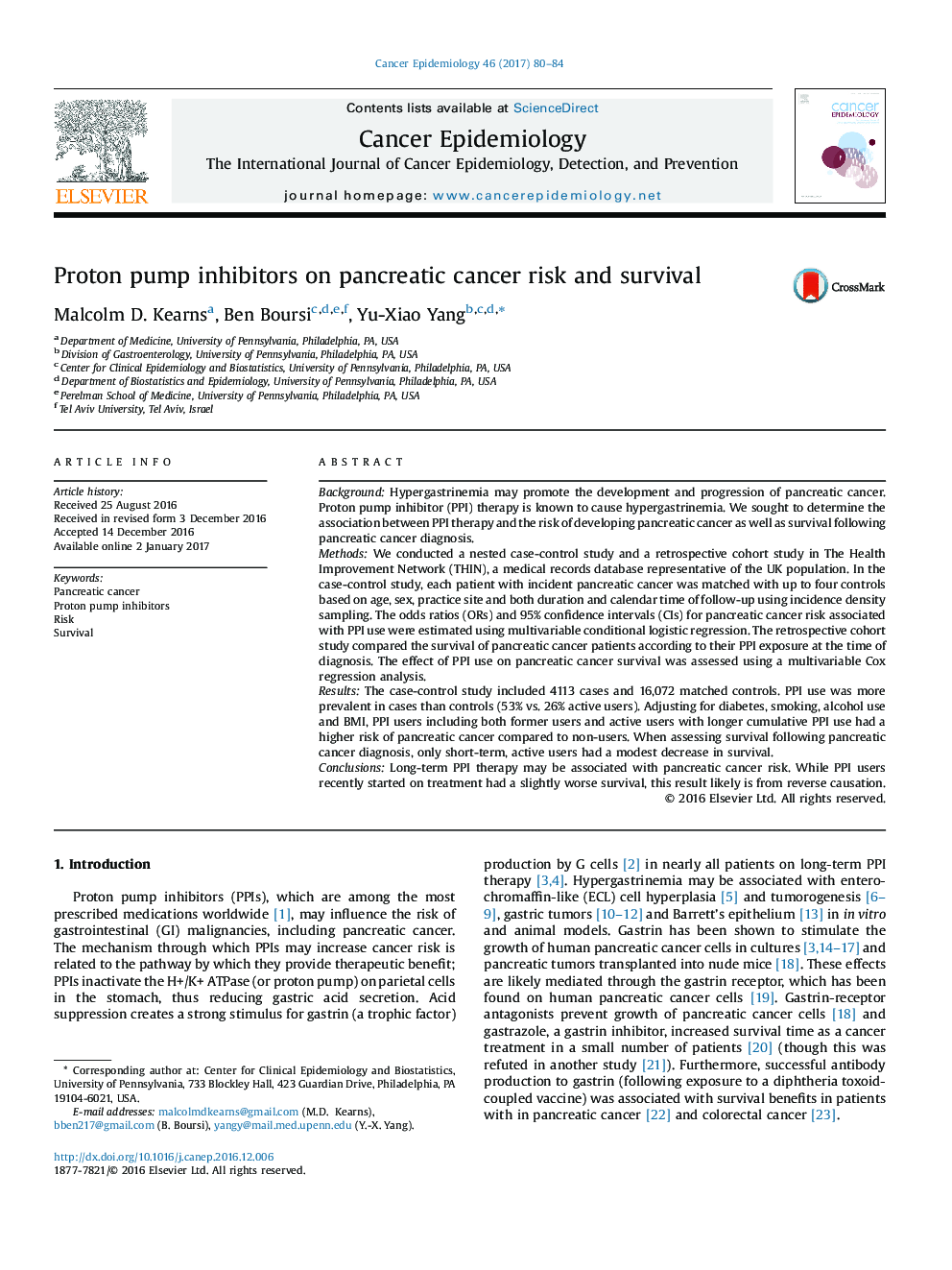| Article ID | Journal | Published Year | Pages | File Type |
|---|---|---|---|---|
| 5524808 | Cancer Epidemiology | 2017 | 5 Pages |
â¢Hypergastrinemia is mechanistically linked to pancreatic cancer risk.â¢Proton pump inhibitors (PPIs) cause hypergastrinemia.â¢PPIs may be associated with an increased risk of pancreatic cancer.â¢PPI use is not associated with survival in pancreatic cancer patients.â¢PPIs should be prescribed judiciously but not withheld in patients with pancreatic cancer.
BackgroundHypergastrinemia may promote the development and progression of pancreatic cancer. Proton pump inhibitor (PPI) therapy is known to cause hypergastrinemia. We sought to determine the association between PPI therapy and the risk of developing pancreatic cancer as well as survival following pancreatic cancer diagnosis.MethodsWe conducted a nested case-control study and a retrospective cohort study in The Health Improvement Network (THIN), a medical records database representative of the UK population. In the case-control study, each patient with incident pancreatic cancer was matched with up to four controls based on age, sex, practice site and both duration and calendar time of follow-up using incidence density sampling. The odds ratios (ORs) and 95% confidence intervals (CIs) for pancreatic cancer risk associated with PPI use were estimated using multivariable conditional logistic regression. The retrospective cohort study compared the survival of pancreatic cancer patients according to their PPI exposure at the time of diagnosis. The effect of PPI use on pancreatic cancer survival was assessed using a multivariable Cox regression analysis.ResultsThe case-control study included 4113 cases and 16,072 matched controls. PPI use was more prevalent in cases than controls (53% vs. 26% active users). Adjusting for diabetes, smoking, alcohol use and BMI, PPI users including both former users and active users with longer cumulative PPI use had a higher risk of pancreatic cancer compared to non-users. When assessing survival following pancreatic cancer diagnosis, only short-term, active users had a modest decrease in survival.ConclusionsLong-term PPI therapy may be associated with pancreatic cancer risk. While PPI users recently started on treatment had a slightly worse survival, this result likely is from reverse causation.
